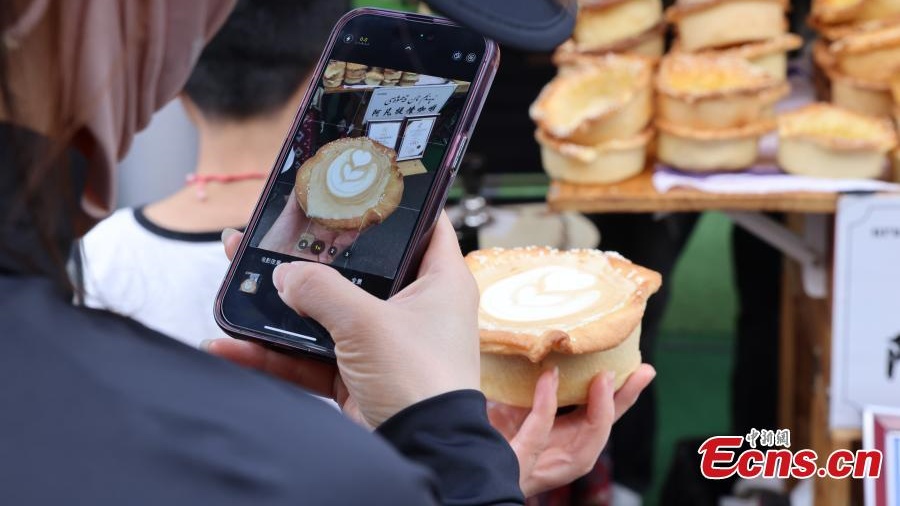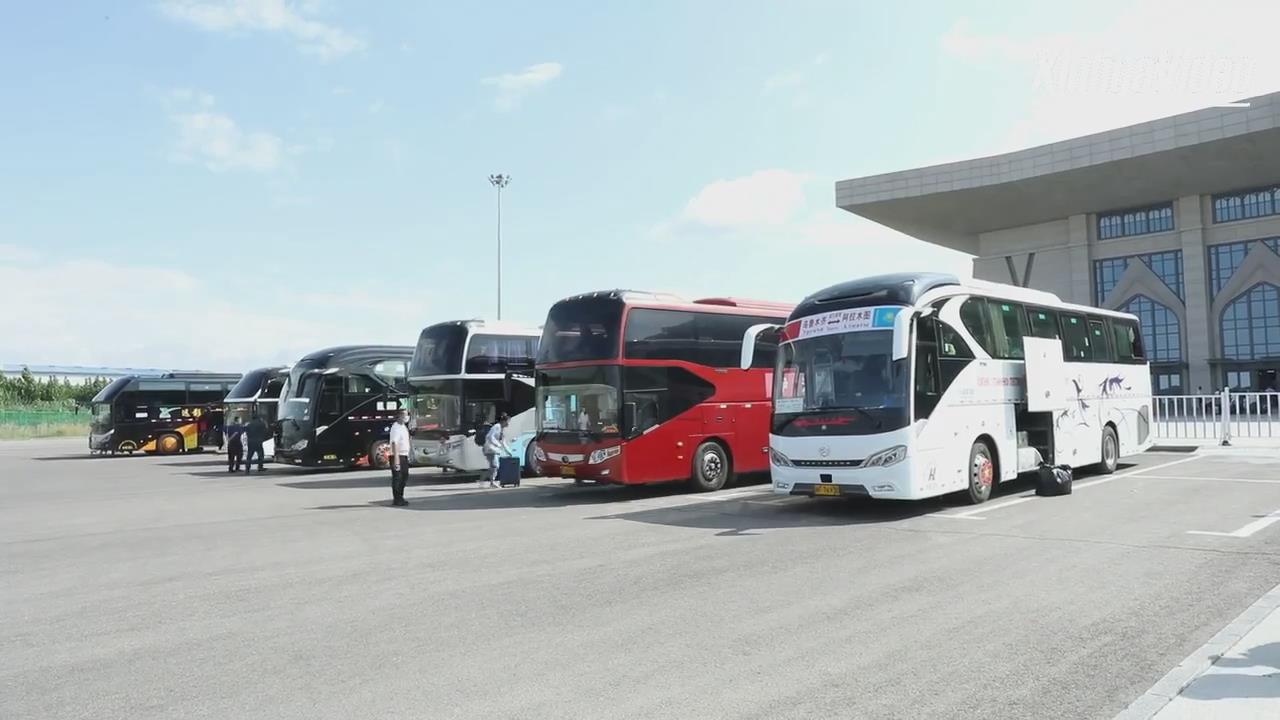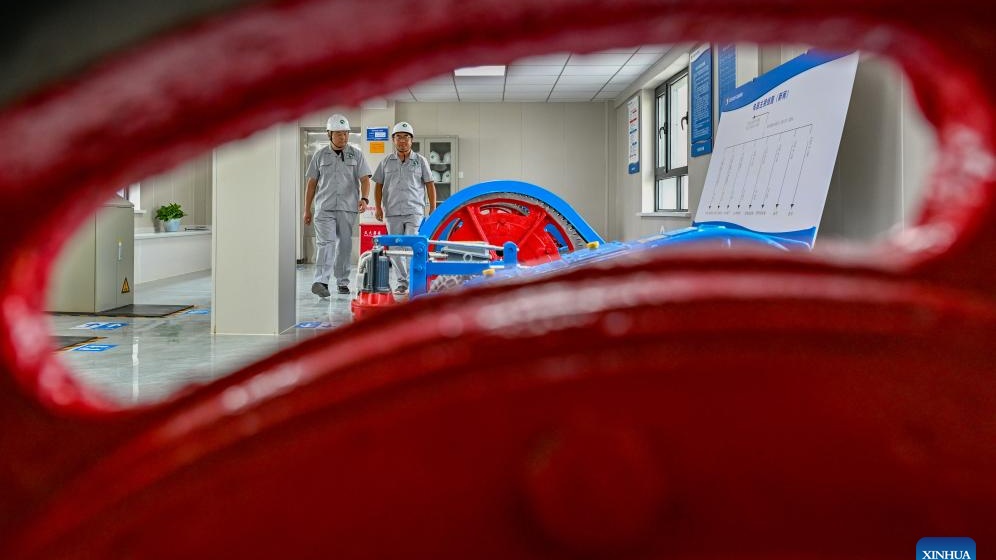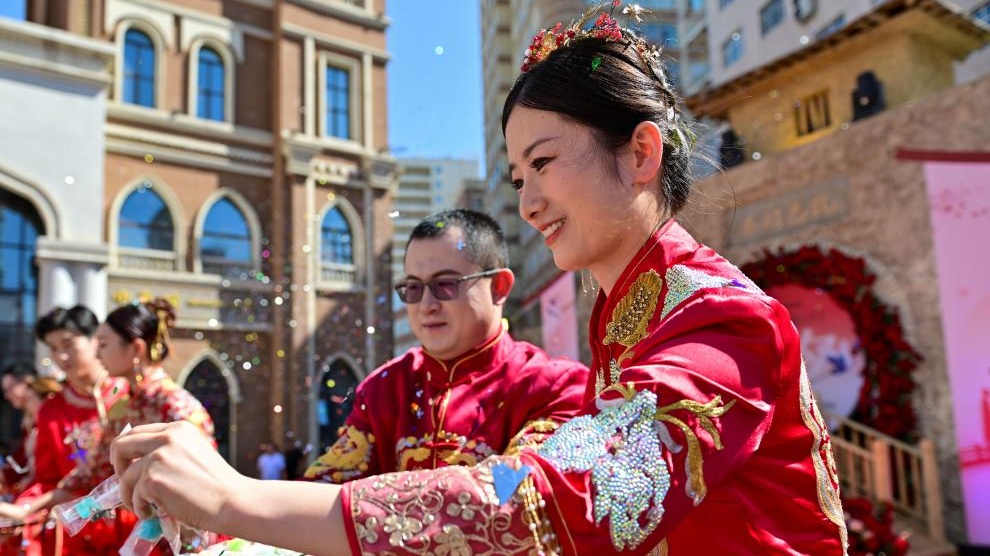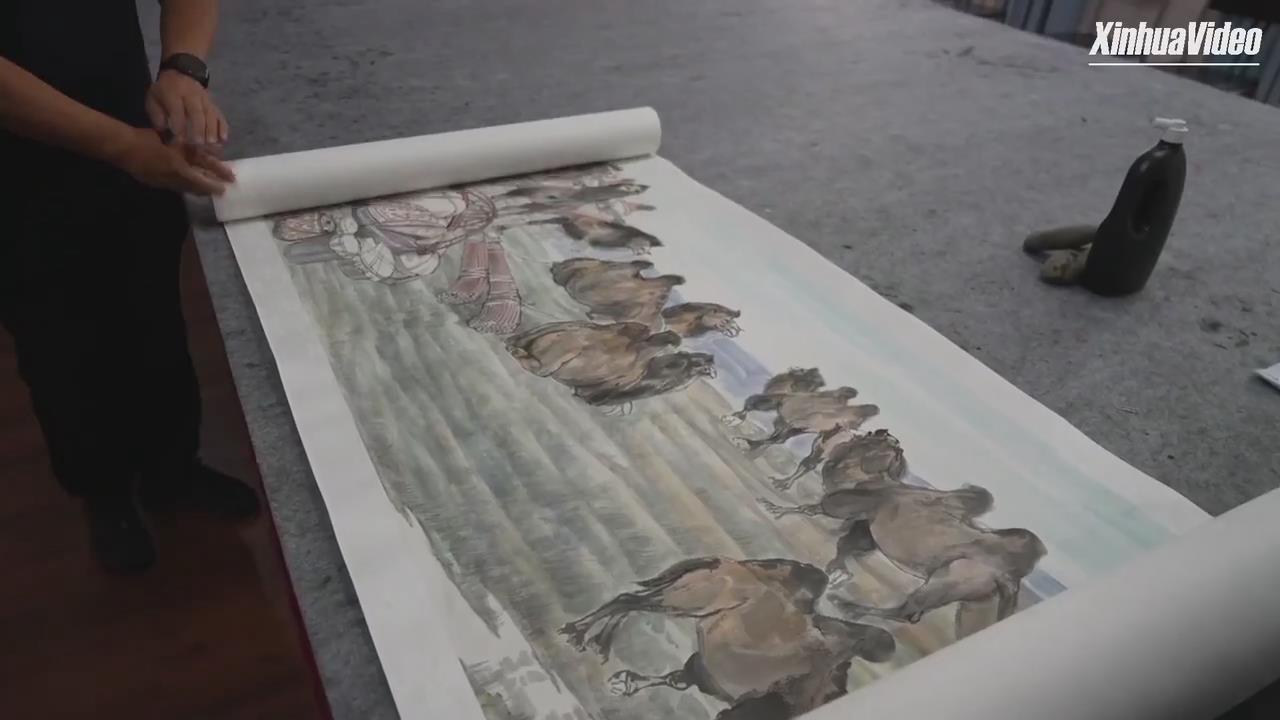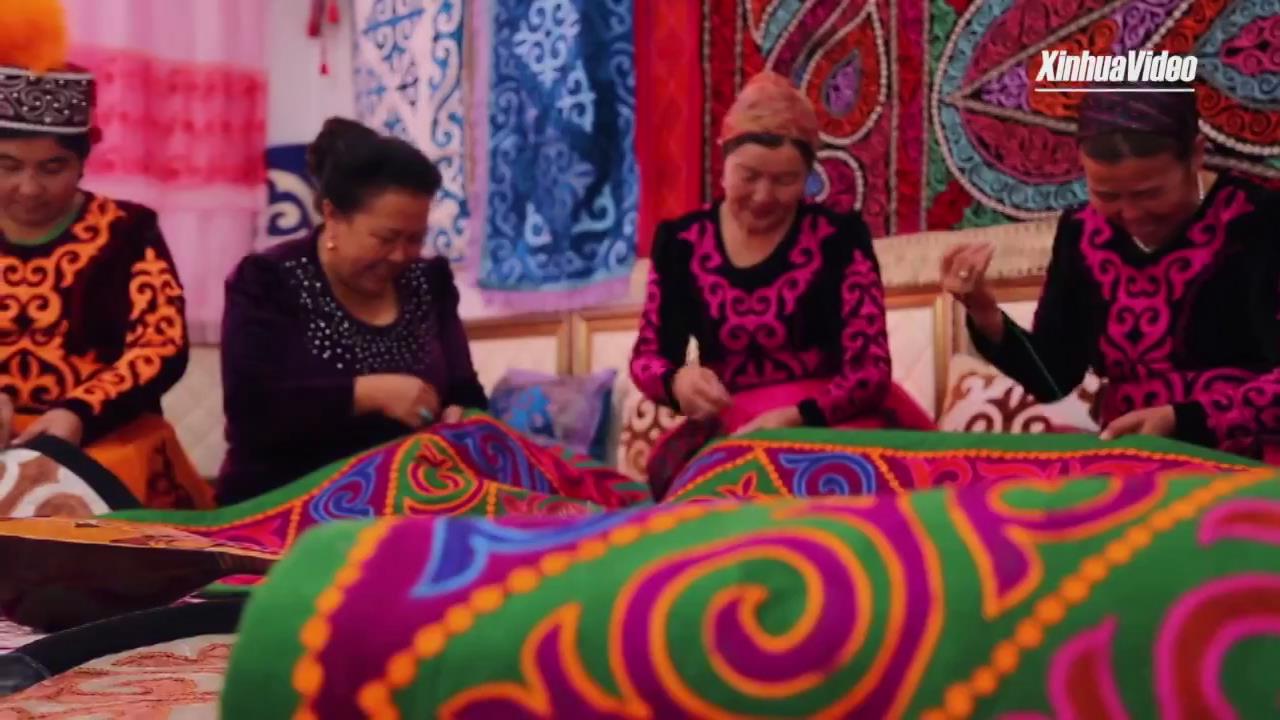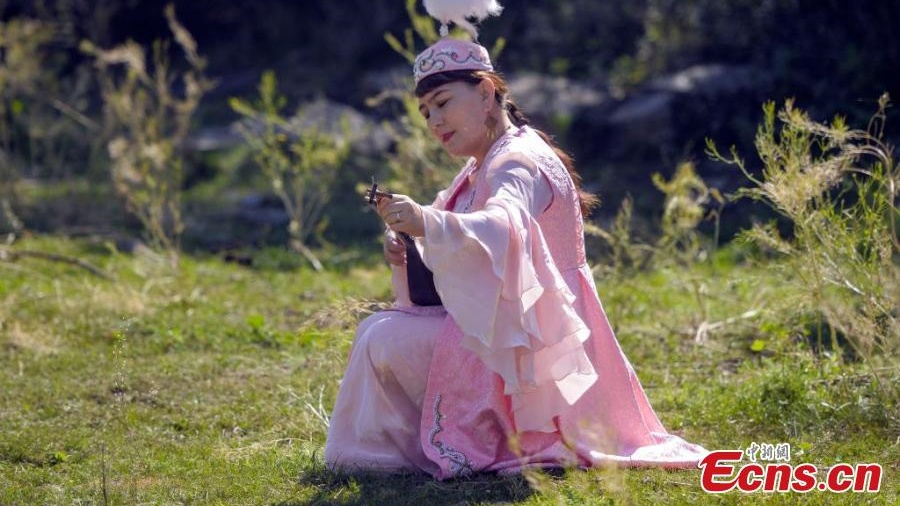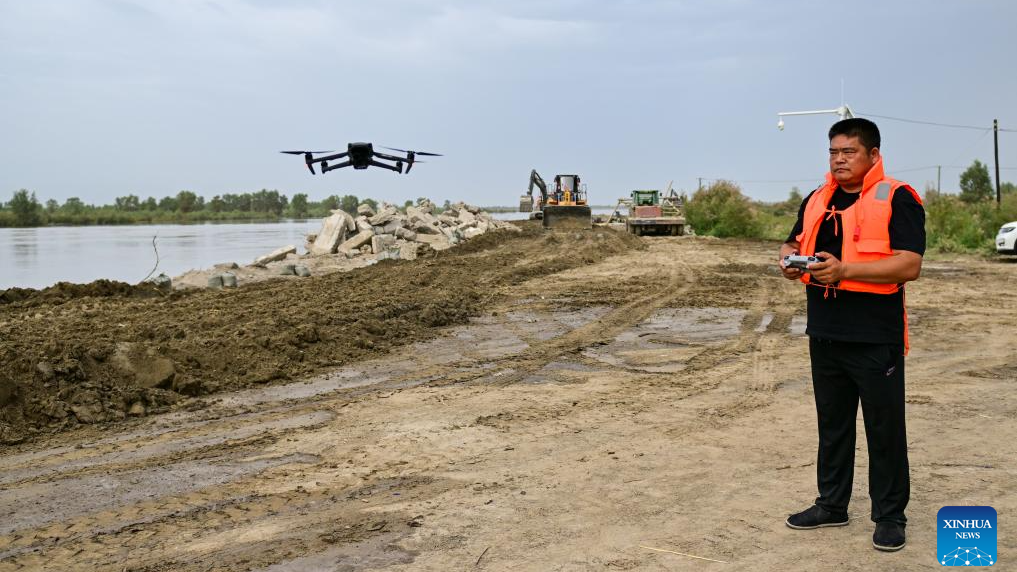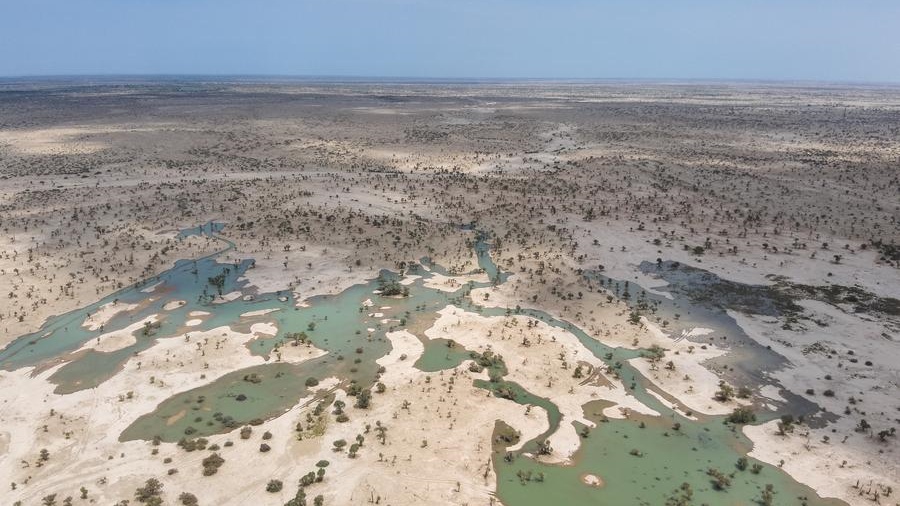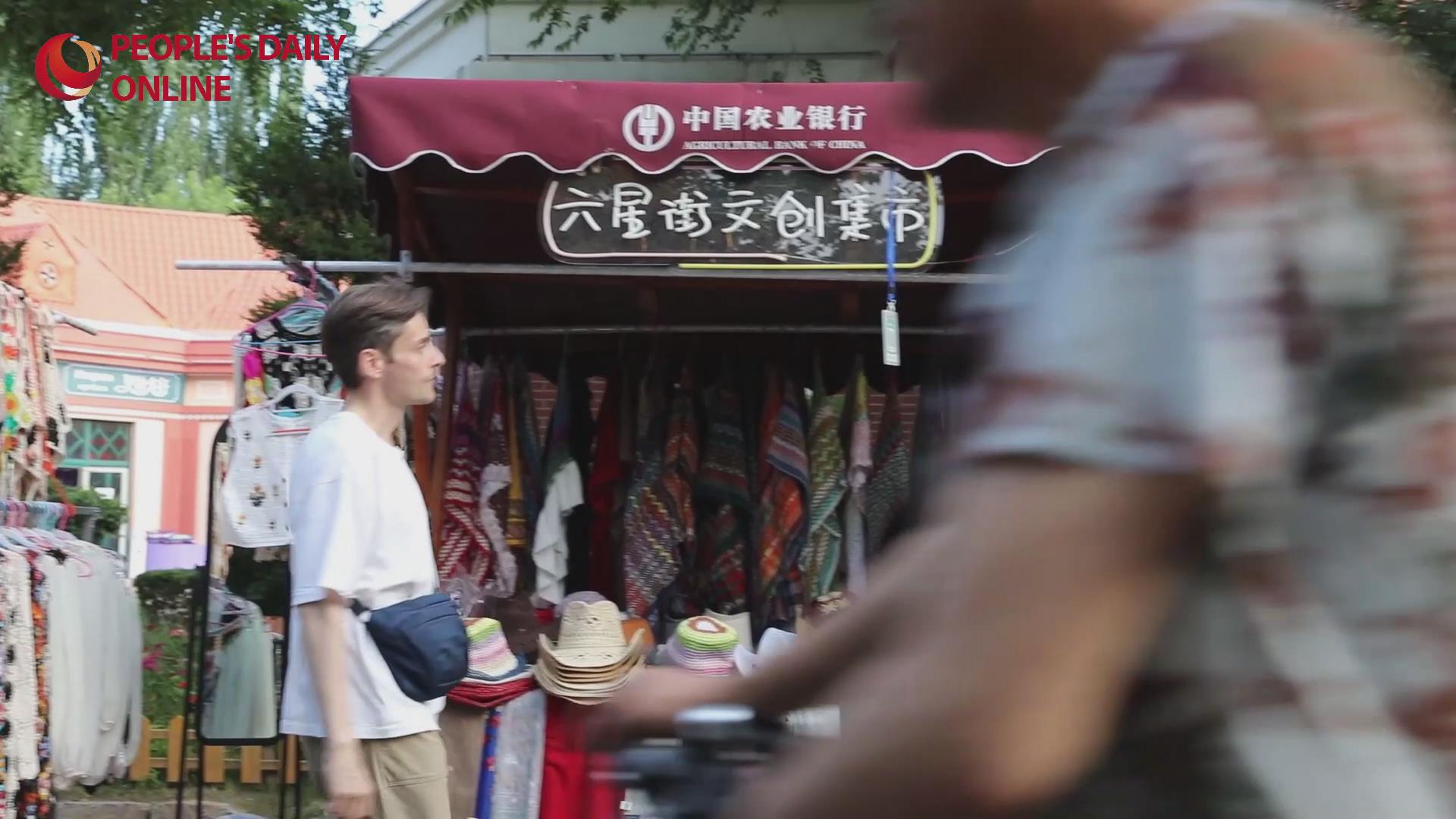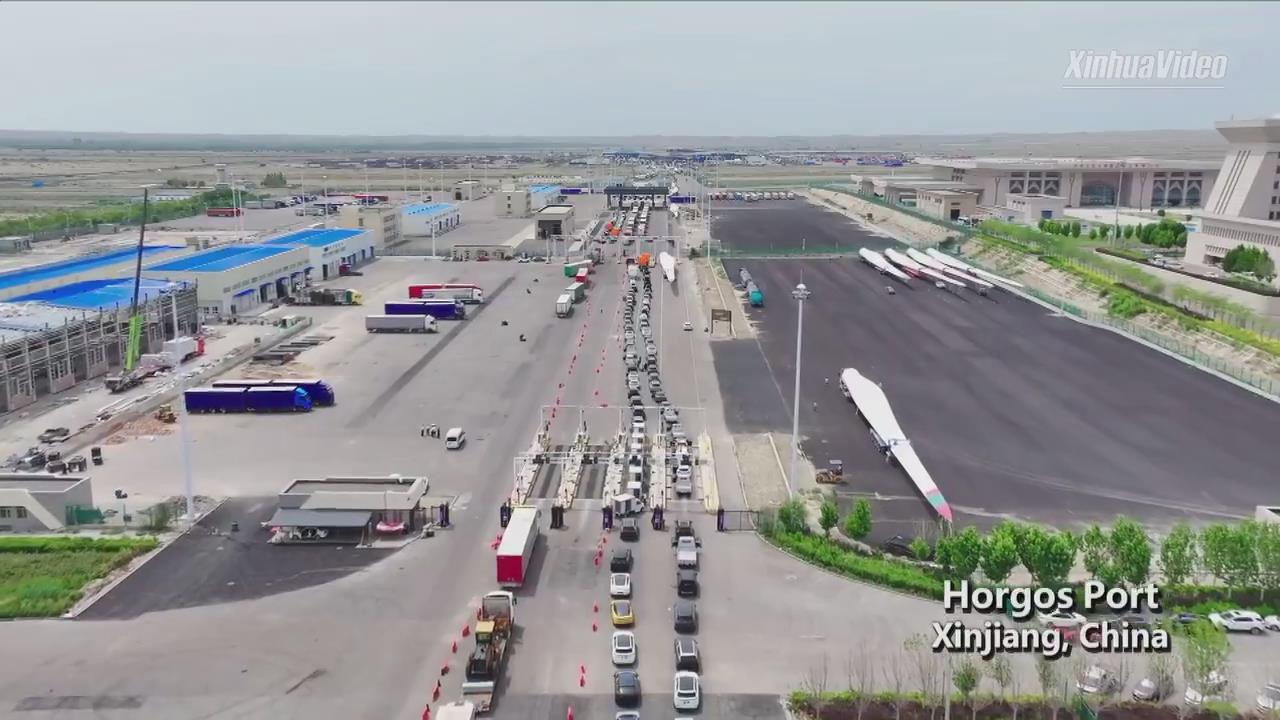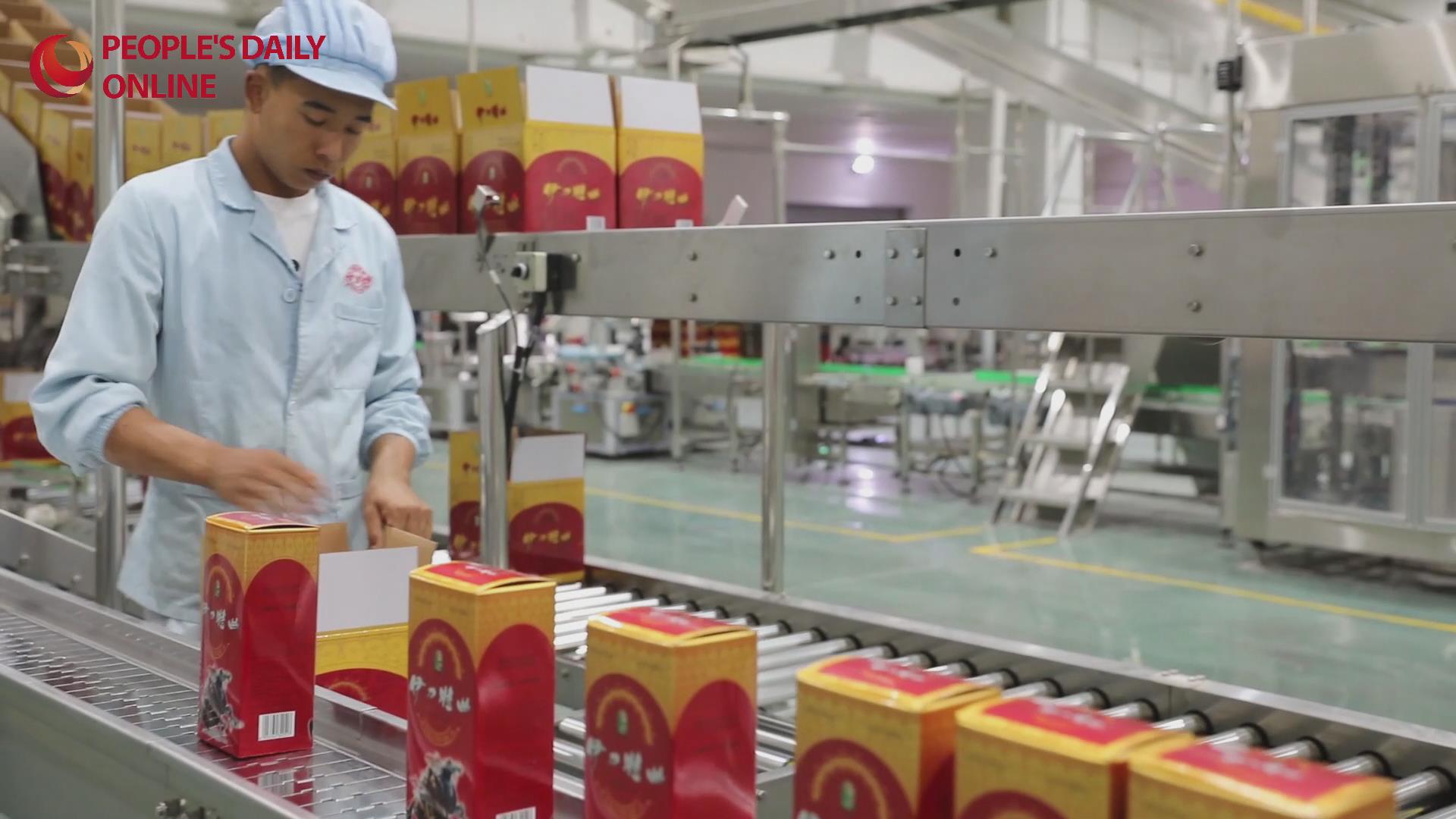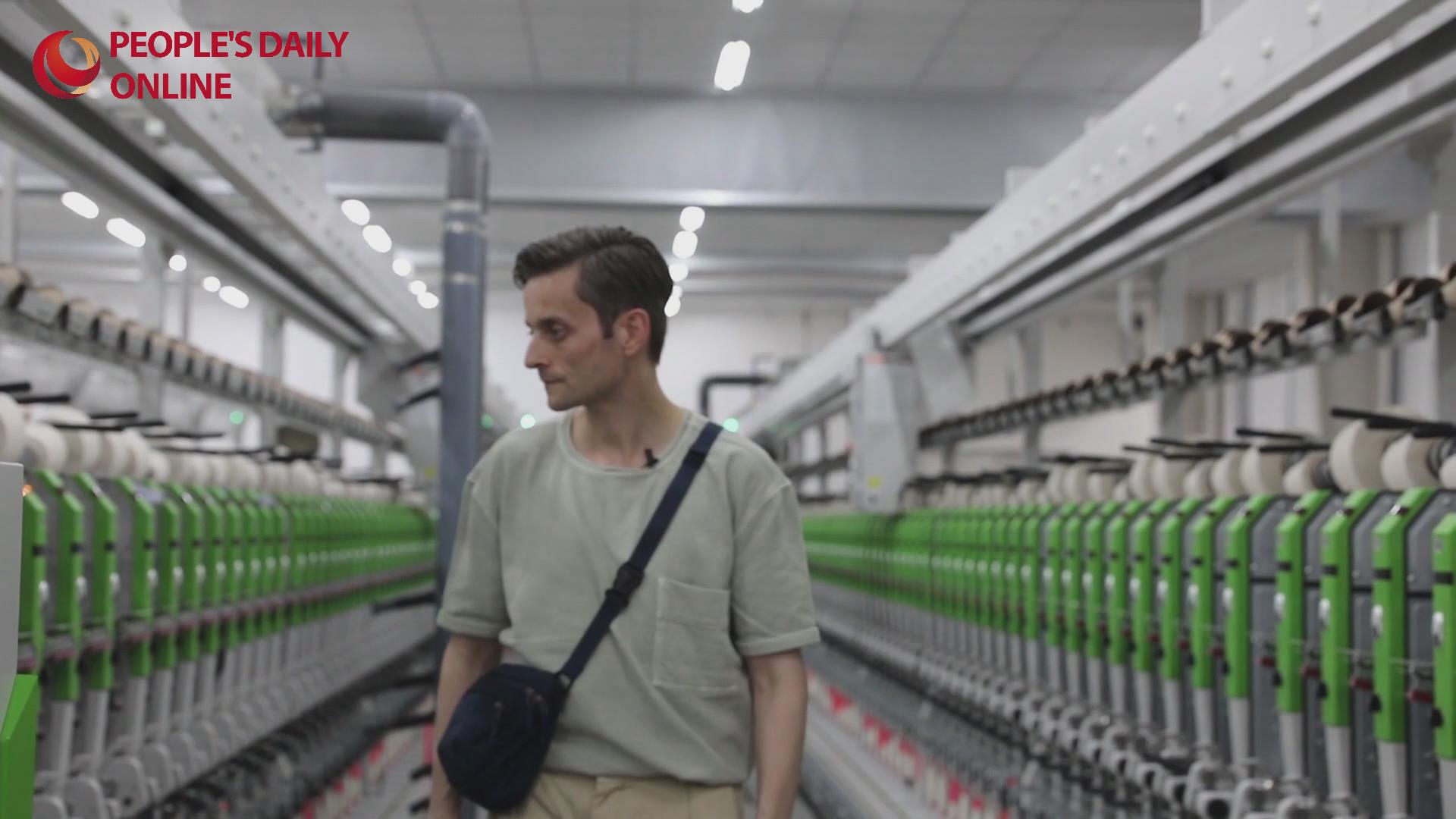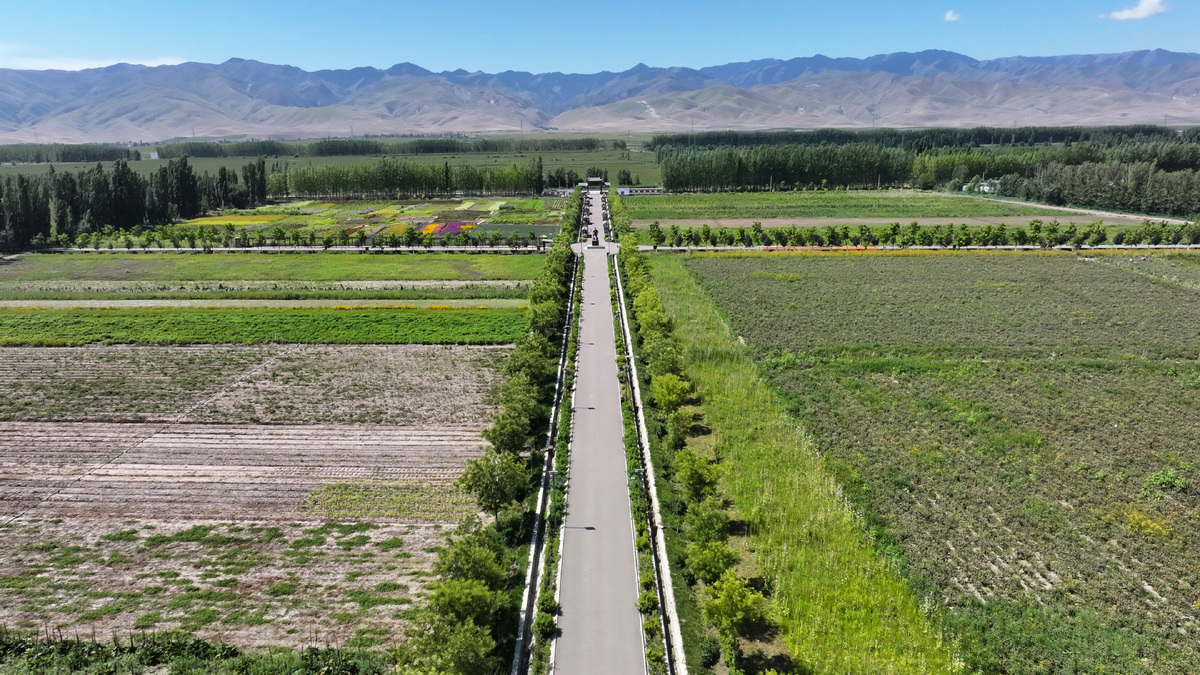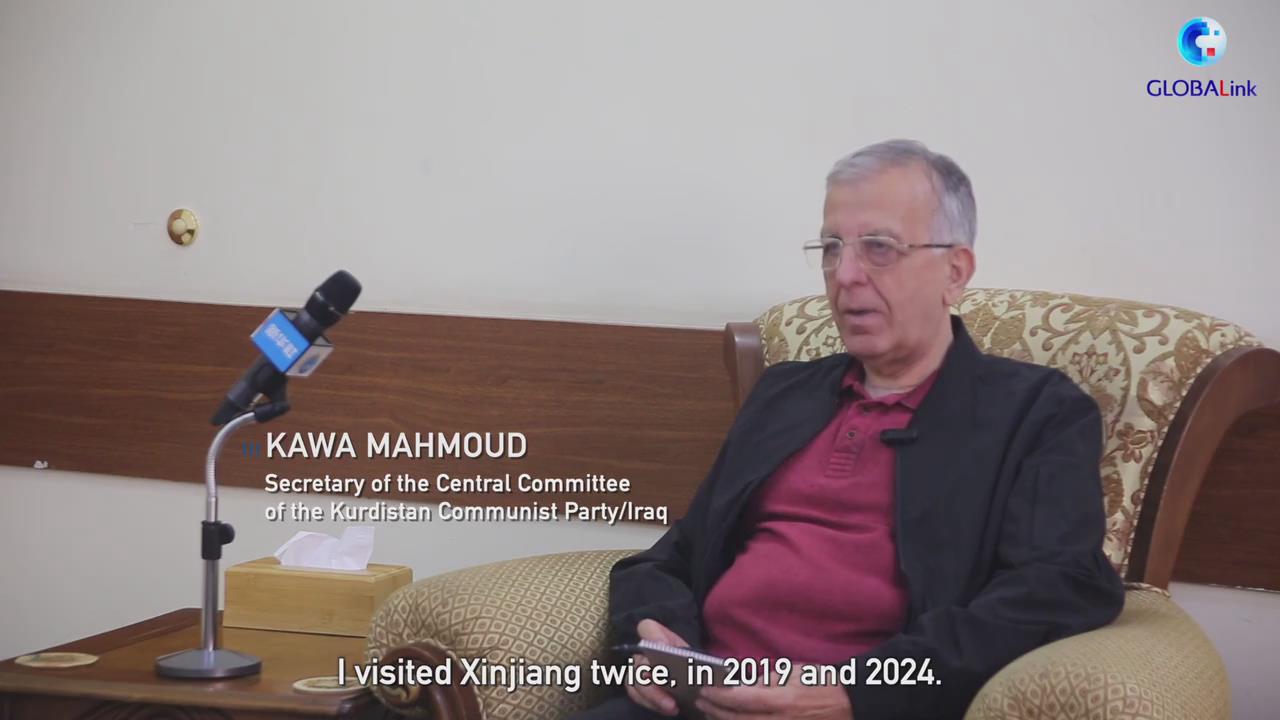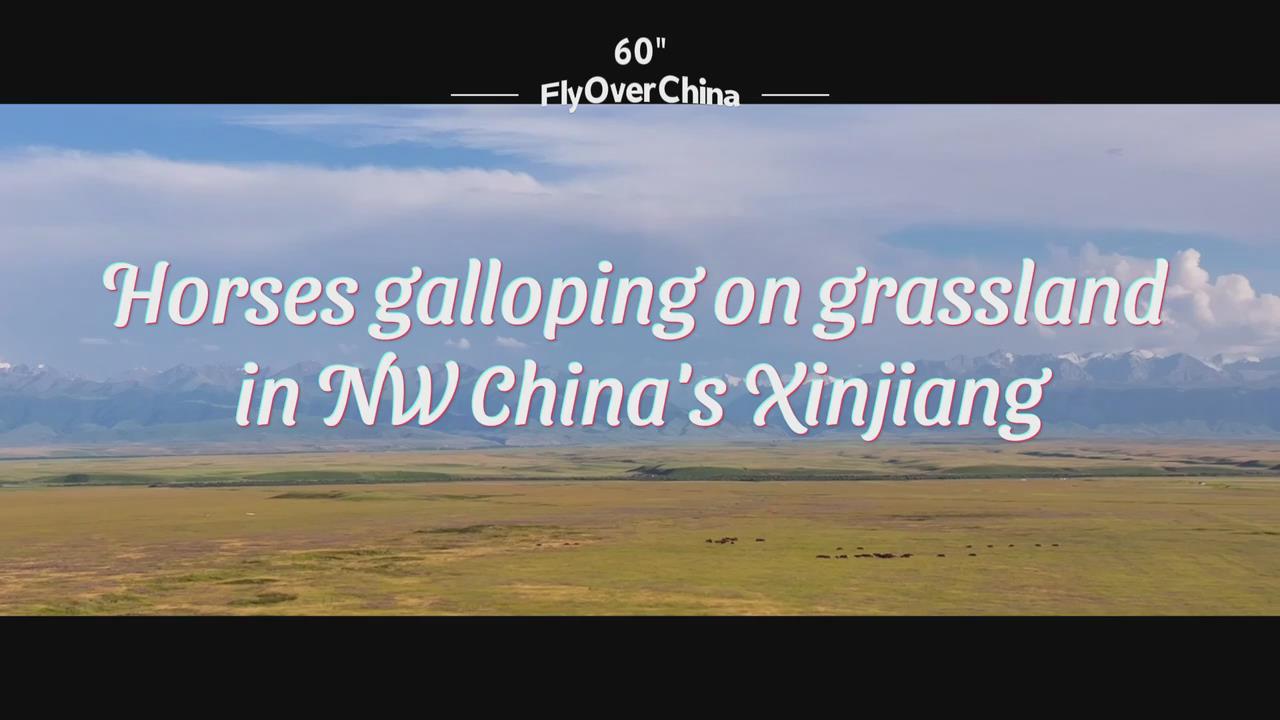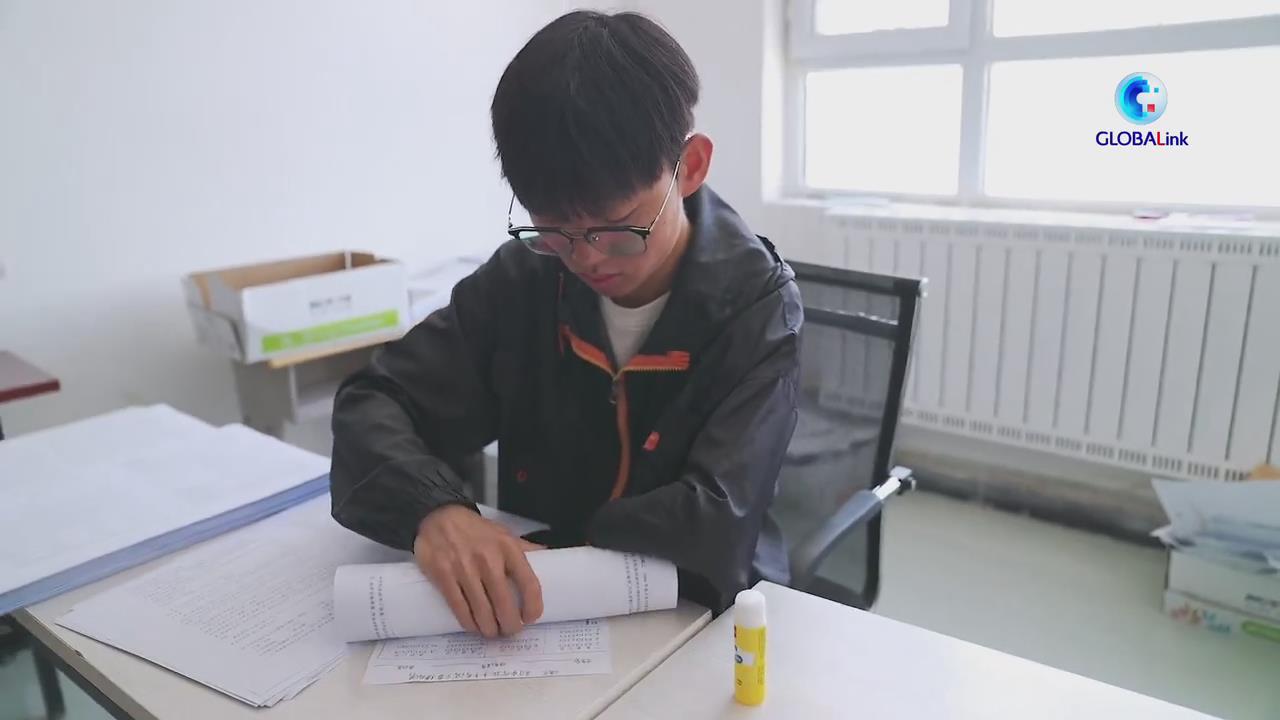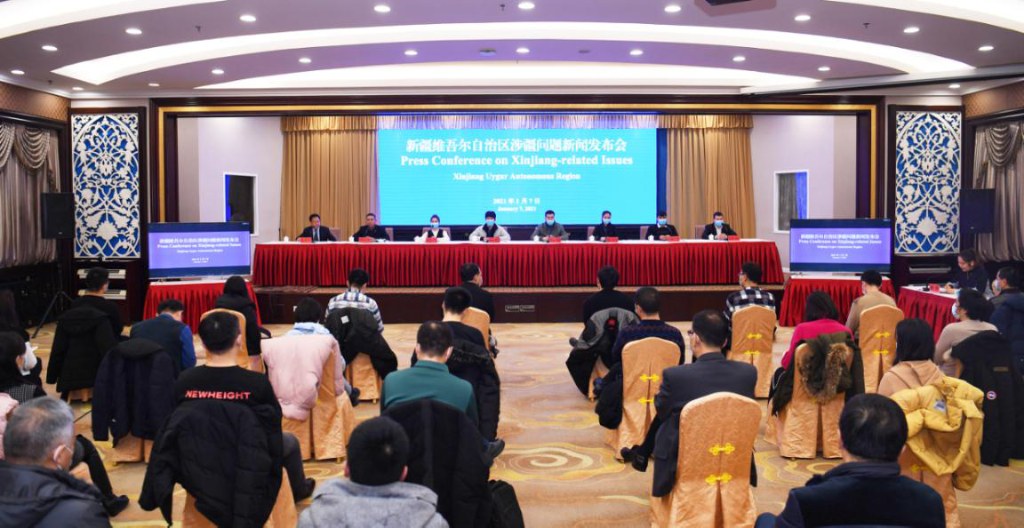
Photo taken on January 7, 2021 shows the 22nd Press Conference on Xinjiang-related Issues held in Urumqi, capital of northwest China’s Xinjiang Uygur Autonomous Region.Photo by Wang Zheng of Xinjiang Daily
On January 7, 2021, the Information Office of the People's Government of Xinjiang Uygur Autonomous Region held the 22nd press conference on Xinjiang related issues, at which the following invitees the migrant worker Tursuntohti Matyusuf from Cele County of Hotan Prefecture, the migrant worker Abdul Juma from Luopu County of Hotan Prefecture, the migrant worker Abduhabar Jappar from Moyu County of Hotan Prefecture, the migrant worker Dilinur Emerniyaz from Luopu County of Hotan Prefecture, the migrant worker Aziz Rehit from Shaya County of Aksu Prefecture, the migrant worker Mahmut Matqasim from Aksu City of Aksu Prefecture, the self-employed entrepreneur Kalibnur Kurban from Turpan City, answered questions from the press.
Xu Guixiang: Dear friends from the press, good morning. Welcome to the press conference on Xinjiang related issues held by the Information Office of the People's Government of Xinjiang Uygur Autonomous Region.
Today, we are very happy to have several migrant workers and a self-employed entrepreneur of Xinjiang to be present at the press conference. They are the migrant worker Tursuntohti Matyusuf from Cele County of Hotan Prefecture, the migrant worker Abdul Juma from Luopu County of Hotan Prefecture, the migrant worker Abduhabar Jappar from Moyu County of Hotan Prefecture, the migrant worker Dilinur Emerniyaz from Luopu County of Hotan Prefecture, the migrant worker Aziz Rehit from Shaya County of Aksu Prefecture, the migrant worker Mahmut Matqasim from Aksu City of Aksu Prefecture, the self-employed entrepreneur Kalibnur Kurban from Turpan City. We would like to invite them to share their true stories and work experiences. Journalists are welcome to communicate with them.
Question 1: Thank you, the host. I am from the Xinjiang Daily. Some foreign media reports allege ethnic minority workers are “subject to surveillance” and “deprived of personal freedom” at factories. Could some of the workers introduce their workplace environment and conditions? Thank you.
Xu Guixiang: This question goes to the migrant worker Tursuntohti Matyusuf from Cele County of Hotan Prefecture.
Answer: I am Tursuntohti Matyusuf from Cele County of Hotan Prefecture. I’m 23 years old, currently working at a company in Korla City. I would like to talk something about my work and life there.
In early March 2018, I found a job at a Korla City-based company through a friend of mine and signed a labor contract with it.We are well paid, with the “five social insurances,” namely pension, medical, unemployment, workplace injury and maternity (for female employees) insurances, and housing provident fund being covered by the employer. I can get a net pay of 4,000 yuan a month, and another 300-400 yuan for full attendance reward every month. We live in the company’s dormitories which are en-suite and fitted with wardrobes, a shower water heater, an air-conditioner and a water dispenser; the company provides us with free toiletries and quilts and bedding. Halal meals are offered in buffet at the Muslim canteen everyday, with a variety of dishes for us to choose, including noodles, rice and stir-fired dishes, lamb pilaf, and Xinjiang-style chicken stew.
The management and workmates are all kind to me, treating me like a family member and being generous to help. This really impressed me. For instance, senior workers taught me to master the skills almost hand over hand. Their patient assistance enabled my growth in skills and elevated me to stand out in the model worker contest. The company would prepare a cake for the employee who celebrates his or her birthday, and workmates also give him or her gifts at such happy moment which involves a lot of singing and dancing.
We work eight hours a day at the company and can ask for a leave in case of need. After work, I’d like to video call my family on Wechat, talking about the fun things happened at the company or inviting their comments on my new clothes; sometimes I go shopping or partying with my workmates. In the evening, we often go for a stroll along the Kongque River which runs through Korla, a city with beautiful night views. For the yearly home leave, we can either go on vacation or return home spending the days with my family.
I have earned well since I worked in Korla. I send money home every month and my family is increasingly better-off and can afford a lot more better food, clothes and daily necessities. Our neighbors commend my parents for having a son like me. My parents are happy too, saying I have grown up and become considerate. I cherish my job and will work harder, making more money to give my family an even better life.
Both at work and in life, we have never been monitored, nor has our freedom been restricted. The media outlets which misreported have never visited our company, let alone talking with us. They know nothing about the realities in here, which only explains that their allegations are just fabrications.
Xu Guixiang: Thank you, Tursuntohti Matyusuf. Please go ahead to raise questions, media friends.
Question 2: Thank you, the host. I am from the Xinhua News Agency. Some foreign media reports claim ethnic minority workers’ customs, habits, and religious belief are “banned” and “suppressed.” Could some of the workers talk about how their rights, such as their customs, habits and religious belief, are protected at their workplace? Thank you.
Xu Guixiang: This question goes to the migrant worker Abdul Juma from Luopu County of Hotan Prefecture.
Answer: I am Abdul Juma from Luopu County of Hotan Prefecture. I now work at a cement factory in the county.
I am 50 years old and have worked for three factories. Over the years, I’ve never heard of and seen anyone whose customs, habits and religious belief were banned and suppressed.
As far as I’m concerned, I have been working for this cement plant since 2013. The company has offered us good salary and catering and living conditions, with which we are very satisfied. It respects our dietary habits and has specially opened a Muslim canteen to provide pilaf, hand pulled noodles, spicy chicken, pitir manta and so on; all are our favorite food. In Luopu County, where I live, Muslim restaurants can be seen everywhere. We often invite our friends to try these restaurants on holidays.
When the company organized the employees for outings or trips, it would buy lamb for us to have a barbecue. Every time, I was responsible for making shish kebabs, which were so delicious that my colleagues would rush to eat, and they all praised my barbecue skills. During our traditional festivals, such as the Corban Festival and Id al Fitr, the company gave each employee 800 to 1,000 yuan of subsidy for buying beef and lamb. In order to celebrate the festivals, it also organized cultural activities, in which some colleagues would play the cheerful folk instrument rewap, while others would dance energetic folk dance mashrap; everybody would join the lively and joyful activities. After work or on weekends, the Muslim employees can go to mosques to attend religious activities. No one has ever interfered in our weddings, funerals and other traditional and customary activities.
Xu Guixiang: Thank you, Abdul Juma. Please go ahead to raise questions, media friends.
Question 3: Thank you, the host. I am from the China National Radio. It is learned that some surplus rural laborers in southern Xinjiang got jobs near their homes. Can I ask any of them to talk about their life changes and personal feelings after getting nearby employment? Thank you.
Xu Guixiang: This question goes to the migrant worker Abduhabar Jappar from Moyu County of Hotan Prefecture.
Answer: My name is Abduhabar Jappar. I’m from Moyu County, Hotan Prefecture, and now I work for an installation company in our village.
In the past, I did not have a stable job, and mainly relied on doing odd jobs and farming to support my family. Later, my mother had a heart operation and needed to be taken care of. So I wanted to find a stable job. It would be better to be close to my home, so that I could not only increase my income, but also take care of my mother. In Oct., 2018, when I went to the village committee, I saw the job advertisement of the village installation company on the bulletin board. After I went home, I told the good news to my family, who all supported me to go for the job. Then I went to the company to apply for the job, successfully passed the interview, and signed a labor contract with the company. In this way, I realized my desire of working near my home.
I cherish this job very much. When I encountered something I don’t know how to do in my work, I consulted my colleagues. Due to my diligence and hard work, I learned electric welding and electrical engineering in a very short time, and I also got two apprentices. Now whenever there is any difficult water or electricity problem in the factory, people will come to ask me to solve it. In Dec., 2019, my boss promoted me to the vice general manager of the company to be in charge of two factories. Now my monthly salary is more than 4,000 yuan, reaching over 6,000 yuan at higher times. The company has also provided me with a car, which has made it very convenient to go out for business.
The company offers good salaries and benefits. Apart from salary, if it sends us on a business trip within Moyu County, we can get 30 yuan of subsidy every time; for business trips outside the county, we can get 50 yuan of subsidy every time. Now my wife works in our company, too. She earns more than 2,000 yuan a month.
Thank to the stable income of me and my wife, our life has seen great changes. We have moved into a new house, and bought a washing machine, a fridge and other home appliances. I’ve also bought my wife an electric bicycle, which has made it easier for her to send and pick up our children from school or to go out for shopping. On weekends, I often take my family to the downtown of Hotan City or Moyu County for shopping, entertainment, or barbecues. Last year when it was my wife’s birthday, I bought her a gold necklace. She loved it. Seeing the beaming smiles on my family members’ faces, I feel my heart is as sweet as honey.
I want to say that it is awesome to work in the installation company in our village. This has provided jobs for me and my fellow villagers, increased our income, and solved my problem of making money while taking care of my mother. In the future, I will continue to work in the company, and make my life even better with hard work.
Xu Guixiang: Thank you, Abduhabar Jappar. I hope your life is getting better and better. Please go ahead to raise questions, media friends.
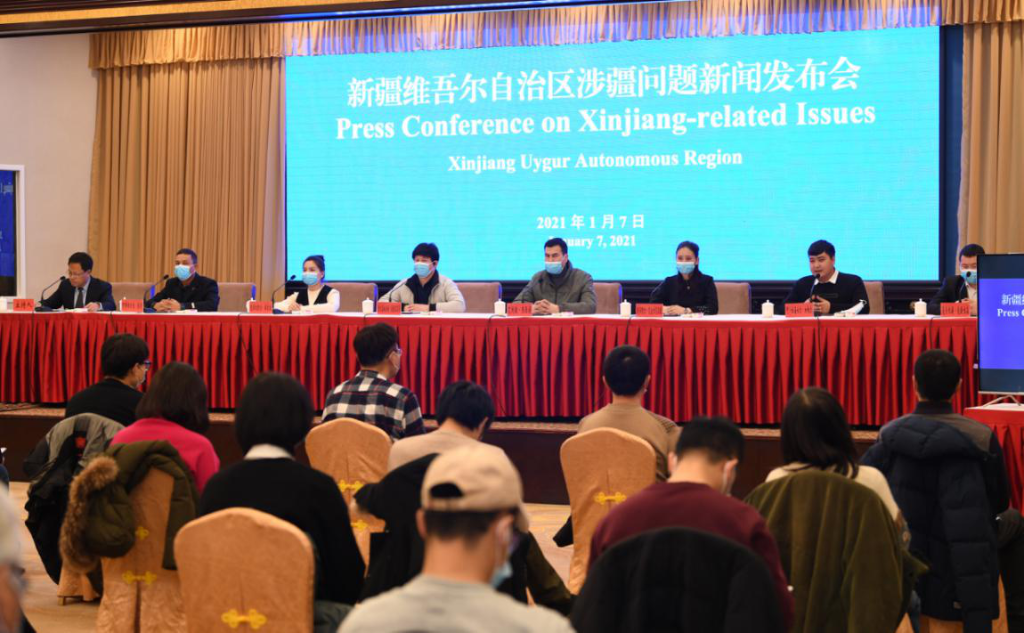
Photo taken on January 7, 2021 shows the 22nd Press Conference on Xinjiang-related Issues held in Urumqi, capital of northwest China’s Xinjiang Uygur Autonomous Region.Photo by Wang Zheng of Xinjiang Daily
Question 4: Thank you, the host. I am from the China Daily. Some foreign organization claimed that in Xinjiang it is required that all people of legal employment age must be employed, women who have small kids to look after included, is that true? In this case,is there any forced labor for them? Thank you.
Xu Guixiang: This question goes to the migrant worker Dilinur Emerniyaz from Luopu County of Hotan Prefecture.
Answer: My name is Dilinur Emerniyaz and I am 27 years old. I’m from Luopu County of Hotan Prefecture, and presently, I work at a cooperative in the county.
We Ugyurs have a saying: “ Two pennies earned with one’s hard work is better than a mountain given by the emperor.” We want good life, so we work and make money with our hard work, why would we need to be forced to do so?
I have two kids, when they were little, I had to stay at home and take care of them as a housewife. Seeing my husband getting so busy and working so hard, it really pained me. I have always wanted to go out for work when I am still young, so that I could also make money and create better life conditions for my kids.
Now my kids have grown up, and I could be freed from domestic affairs. Last year, a friend told me that a newly opened neighborhood cooperative was recruiting. I applied for the job and later got employed. After that, I signed the labor contract with the employer. As I studied accounting at the college, so my post at the cooperative is an accountant with a monthly salary of 3,500yuan. I was so excited the first month when I got my pay. I brought new clothes for my husband and my parents, yummy foods for the kids, and clothes and cosmetics for myself, and everybody was so happy. Today, what I wear for this press conference is all paid with my own money, and I’m proud of it. In the past, my husband had to take all the burden of supporting the family, but now both of us have stable incomes, so we could lead a much better life. Recently I’ve been taking lessons for a driving license. We are planning to buy a car so that we could go out for self-driving tours to further places.
In the future, I want to learn more about management and acquire more skills, so that I will demonstrate more of my capabilities in the work and earn more money. Here I want to ask those with ulterior motives, are we wrong to create a better life with our own hands? Can’t women with kids go out and find jobs? And if we don’t, would you pay and feed the kids for us?
Xu Guixiang: Thank you, Dilinur Emerniyaz. Please go ahead to raise questions, media friends.
Question 5: Thank you, the host. I am from the Xinjiang Broadcasting and Television Station. Could we ask some ethnic minority employees to talk about their experiences of finding jobs please? Do they sign labor contracts with their employers and are their legitimate rights protected? Thank you.
Xu Guixiang: This question goes to the migrant worker Aziz Rehit from Shaya County of Aksu Prefecture.
Answer: Hello, my name is Aziz Rehit, and I’m 38 years old. I come from Shaya County of Aksu Prefecture. I now work at an agricultural machinery company.
In August 2018, I saw the recruitment information of an agricultural machinery company at Shaya County’s human resource market. Considering that it offered really good pay and was not far from my home, I applied for it. The first thing we did after I passed the the job interview was signing the labor contract. According to the contract, the company is responsible for paying the “five insurances and one pension” for us, namely, endowment insurance, medical insurance, unemployment insurance, work injury insurance, maternity insurance (for female employees) and housing provident fund. It has also bought extra commercial insurance for us. In addition to salaries, bonus will be given on special occasions. For instance,during this year’s Corban Festival, the company gave us benefit packages of daily necessities, including lamb and beef, rice, flour and cooking oils.
Starting from a front-line worker at the beginning, I asked for help and seek advice from my colleagues who were always patient to share the experience dealing with various problems. I participated in professional training organized by our company every month. On account of my good cultural background knowledge, coupled with hard work, my work ability and personal performance have been improved quickly. In March 2019, I was promoted as the workshop leader with 6,000 yuan income per month.
Our company implements an eight-hour work system, and we can have a good rest on weekends and holidays. The company organizes employees to travel to surrounding counties and cities every six months. Employees with more than one-year service can enjoy paid annual leave, and some of my colleagues took vocation in Hainan last year. The company provides four-person dormitories for free for whose who are new to work or whose house is far away from the company. What’s more, our company also provides couples turnover rooms with all household appliances including TVs, showers, and paid water and electricity subsidies for employees, which makes life convenient. Our company set up a halal restaurant in speciality, which has strict limits on the procurement of ingredients, cooking, cleaning, and disinfection of table ware. The meals are hygienic and delicious.
My life has changed a lot since I joined the workforce in this company. This year I bought myself a car and a TV, washing machine, refrigerator and other household appliances for my parents. Currently, I am very satisfied with my job and plan to continue to work here.
Xu Guixiang: Thank you, Aziz Rehit. Please go ahead to raise questions, media friends.
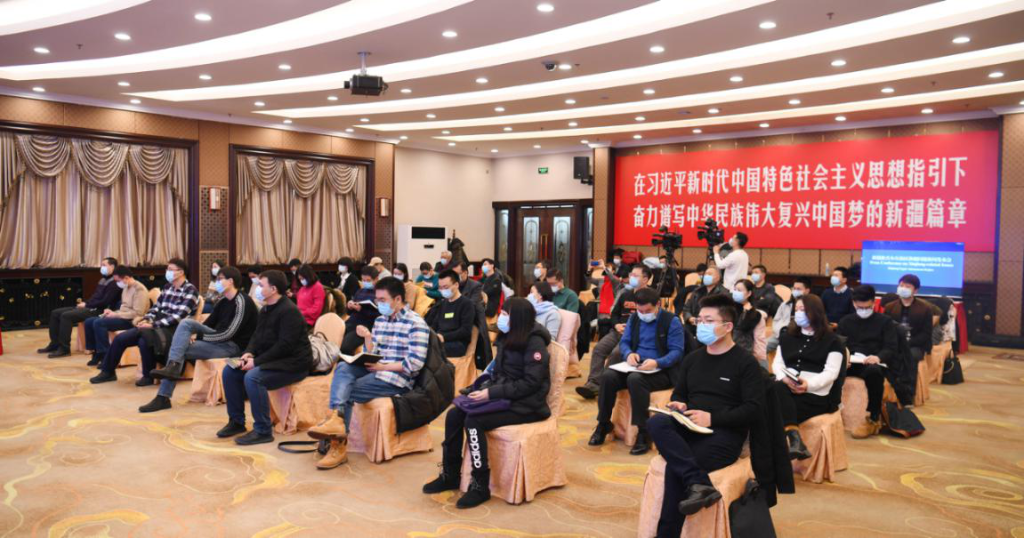
Photo taken on January 7, 2021 shows the 22nd Press Conference on Xinjiang-related Issues held in Urumqi, capital of northwest China’s Xinjiang Uygur Autonomous Region.Photo by Wang Zheng of Xinjiang Daily
Question 6: Thank you, the host. I am from the China News Service. Some foreign media outlet said the labour and employment policy in Xinjiang have not changed or improved the living quality of Uygurs, but have reduced it. Is it true? Thank you.
Xu Guixiang: This question goes to the migrant worker Mahmut Matqasim from Aksu City of Aksu Prefecture.
Answer: My name is Mahmut Matqasim. I’m 23 years old and live in Hongqipo Community, Aksu City. Before 2019, our family income mainly relied on 6 mu of apple land with 20,000 to 30,000 yuan per year, which was barely enough for my family.
In order to help us live a better life, the community taught us professional skills and encouraged us to go out and find jobs. Job fairs were held which provided us with more opportunities to increase our revenue. In July, 2019, I found out that there was a fruit processing enterprise employing workers at the job fair, which provided food and dormitories. I thought that job was good and I wanted to have a try and make more money for my family.
I applied for the job and signed a labor contract with the company. After that, I took part in a 15-day training to learn how to sort out apples and sell them in different levels. When I started to work in the company, there was a colleague teaching me hand in hand with full patience, so I improved my working skills and performance quickly and earned 3,300 yuan per month. I got to know many colleagues here, who also applied for this job. Our basic salary is 3,000 yuan per month, besides that we also have merit pay, that is to say, more work, more payment. Some colleagues came years earlier before me, and they can get 4,500 yuan per month because they are more efficient at work. The company purchased endowment insurance, medical insurance, unemployment insurance, employment injury insurance, maternity insurance for women employees and housing provident fund for us. In addition to the medical expenses reimbursed by the state, the company also reimburses 20% of the medical expenses if we were hospitalized. I thought it was good to work in our company, so I also encouraged my wife to apply for a job. After she came here, our company provided us with a well-conditioned temporary house.
I calculated that apart from the income of growing apples, my family can earn 80,000 yuan per year which was unimaginable in the past. In June, 2020, I gave my parents 10,000 yuan and they visited Karamay City, Altay Prefecture and some other places for more than ten days. They were very happy to see the Devil City (wind-erosion landform) and enjoyed the view of Kanas Lake by boat for the first time. I used my savings to buy the gold ring which my wife desired for a long time. We plan to buy a new house and live in an apartment and I want to get the driver’s license in 2021.When summer comes and melons and fruits are ripe, I will invite my colleagues to my home to see my beautiful house and show them my cooking skills. I often think about it that if there is no national policy to benefit people and without community’s help, how can our family have such a good life?
Xu Guixiang: Thank you, Mahmut Matqasim. Please go ahead to raise questions, media friends.
Question 7: Thank you, the host. I am from the Tianshannet. The government at all levels in Xinjiang supported those who are willing and able to start their own businesses. We’d like to invite some of those entrepreneurs present today to talk about how did the government help them to overcome difficulties. Thank you.
Xu Guixiang: This question goes to the self-employed entrepreneur Kalibnur Kurban from Turpan City.
Answer: My name is Kalibnur Kurban, I live in Old Town Street, Turpan City. Our family started a company and I am the CEO. I’d like to tell you the start up experience of my family.
My father came to Turpan from Hotan Prefecture 29 years ago. He supported my family by wandering the streets and selling carpets. His business blossomed due to his diligence and integrity. Later, our family opened a 560 squares meters carpet shop in the downtown of Turpan. The carpets we sold all came from Hotan, which was more than 1000 km away. It meant high cost of transportation. In order to pass on the ancient skills of carpet weaving, my father decided to open a hand-woven carpet factory in Turpan after discussions with his families.
In 2013, my father told his idea of opening the hand-woven carpet factory to the municipal government of Turpan. The municipal government actively supported us to open the factory and gave us lots of help in choosing locations and going through the procedures. We were short of money to start up. The municipal government coordinated 100,000 yuan of Middle and Small-sized Enterprises Fund and solved our problems. We bought 14 machines and built the factory. In 2015, my father’s dream of opening his own factory was realized. And the hand-woven carpet factory was officially landed in Turpan.
At the beginning, the community helped my father to recruit carpet weaving masters from Hotan Prefecture and workers from the local region. During the process of expanding our business, the community helped us to choose locations for dying workshop and warehouse. They also suggested us to build a carpet museum at the first floor of the company to enlarge the influence of our brand. We bought 80 looms for hand-woven Etles Silk with subsidized loans coordinated by the government. Thus the weaving skills of Etles Silk was better inherited and developed.
At present, our company covers an area of 5000 square meters. There is one carpet production line, one Etles Silk production line and 70 workers. Every year, they produce 1500 square meters hand-woven carpets and 38000 sets of Etles Silk. The yearly income of the company reaches 15 million yuan. In the future, we will continue to expand our company and carry on the brand of hand-woven ethnic carpets and Etles Silk to make our brand known to China and the world. The ethnic traditional culture of Xinjiang will be better inherited and more jobs created, more people will get rich.
Xu Guixiang: Thank you, Kalibnur Kurban.
Just now, several invitees on the stage shared with everyone the things that are concerned, such as the changes in their lives after employment, and the experience of self-employment, as well as the protection of their basic rights in work and life. In fact, many other people also want to come here to communicate and share with you, but due to limited conditions, they cannot come to the scene, we will invite them one after another in the future.
Today's press conference concludes now. Thanks all the invitees, we hope that you will earn more and more money and live a better life. Also, thanks all the media friends.


